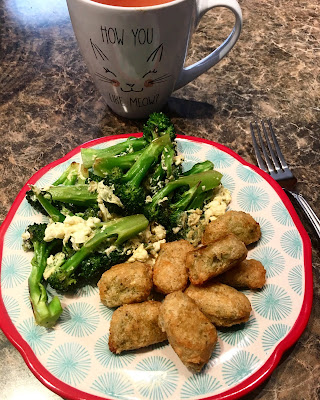What's a Dietitian?
It has been just over a year since I became a Registered
Dietitian! That was one of the happiest moments of my life (aside from my
wedding, of courseJ). Throughout my education, people asked me, “What’s your
major?” When I told them “Nutrition and Dietetics, I am going to be a
Registered Dietitian”, many people looked at me weirdly…”what do they do? Oh,
you’re the food police! You’re going to hate that because nobody will listen to
you. Good luck finding a job. People already know what they should be eating …”
And yet…people aren’t.
The dietitian field is growing more today than ever before,
and I truly believe it is because there is a definite need! With heart disease,
diabetes, obesity, and other medical conditions on the rise, dietitians are
used to help treat individuals (and sometimes groups) with something everybody
has in common: food.
Depending on the interest in this blog, I may share different areas of dietetics and my experiences with all of them, so
stay tuned! Today, I am going to elaborate on what dietitians are and how to
become one along with my education experience.
To begin the discussion, I am not a nutritionist. I am a Registered
Dietitian Nutritionist. What’s the difference? Though there are many nutritionists,
dietitians are not only required to have a bachelor’s degree in Nutrition and
Dietetics but also have to complete a 1200+ hour supervised practice (or
internship for didactic programs) and pass National Boards through the
Commission of Dietetics Registration (CDR)…and boy let me tell you—that test
was not easy. So there are definitely some extra steps one has to take in order
to become a dietitian. Dietitians can go on to work in hospitals, public health
departments, outpatient programs, school systems, fitness facilities and many
more nontraditional areas. In addition to that, RD/RDNs must complete 75 hours
of continuing professional education courses every 5 years. Registered dietitians have many more job
opportunities due to being credentialed.
For my schooling, I attended Loma Linda University in a
coordinated program. My supervised practice hours were incorporated into my 2
year education plan, so after I received my BS in Nutrition and Dietetics, I
already had all my hours completed and was eligible to take boards.
In college, I took numerous classes from basic nutrition to
biochemistry. Dietitians are nutrition scientists. We take anatomy and
physiology 1 & 2, general chemistry 1 & 2, basic microbiology, basic
nutrition, general psychology, and sociology all before getting into nutrition
school. In nutrition school, we take those classes to a deeper level by taking
biochemistry (several biochemistry classes each building on each other),
organic chemistry, medical nutrition therapy, advanced medical nutrition
therapy, nutrition counseling, statistics, finance, food service courses, and
clinical nutrition managing courses. As you can see from that extensive list,
we have a variety of courses to take in order to become a RD/RDN.
All those classes may sound a bit overwhelming and boring to many of you, but they were so informative and fun! One of my fondest memories
from my education actually involves one of my least favorite classes! In one of my food service operations courses,
we were required to participate in “The Brown Bag Project” where my instructor
gave us 3 ingredients: 1 starch, 1 vegetable, and 1 seasoning to create an entree in under 3 hours…kind of similar to one of those competition cooking shows on
Food Network. We were able to use additional ingredients to create this meal. I
was given hominy, artichokes, and coriander. Initially, my first reaction was "What the heck am I supposed to do with hominy!?" After thinking it over, I came up with an idea. My lab partner and I created a
chile rellano stuffed with pureed hominy, fresh artichoke hearts, and black
beans sprinkled with coriander and cheese. It turned out pretty good, and the
judges gave outstanding reviews! It was in this class that I my love for
experimental cooking sparked and thus my recipe development began.
Through my excellent education experience, I went on and
completed my supervised practice hours, graduated with honors, passed the
RD exam, and now am a clinical dietitian. When looking into a school no matter what the profession may be, make
sure your program has a lot to offer you. Loma Linda University had so many
opportunities for me to grow professionally, personally, and spiritually.
What
memories do you have from your professional program? I would love to hear them!
Would any of you be interested in reading about the areas of dietetics? Let me know!
Would any of you be interested in reading about the areas of dietetics? Let me know!
Happy Chewing!
Katrina Detter, RD, LDN
Katrina Detter, RD, LDN
Registered Dietitian Nutritionist
Follow me on social media!
Facebook: Live Better with Kat Detter
Facebook: Live Better with Kat Detter
Instagram: @betterwithkatdetter_rd



Comments
Post a Comment